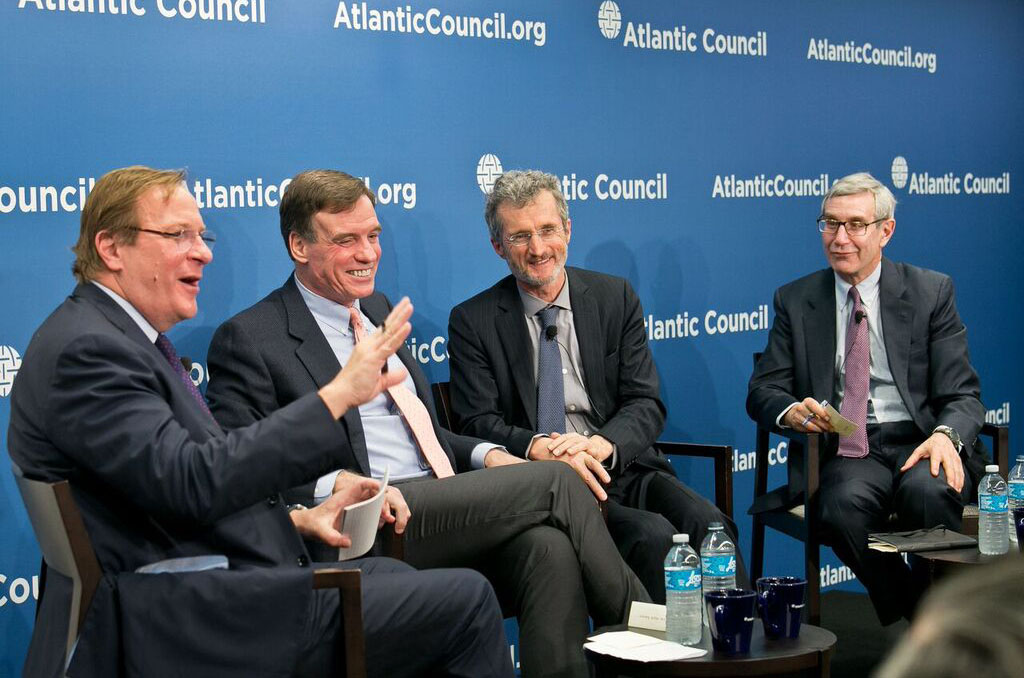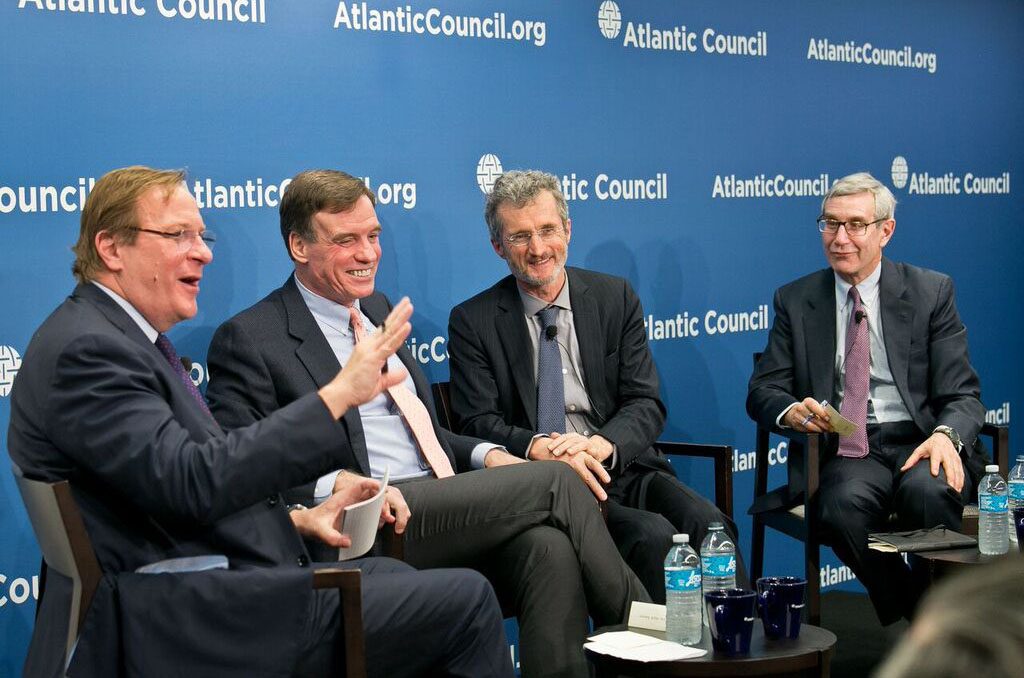 Populist distrust toward government and media have buoyed Donald Trump’s political fortunes, but this is not a phenomenon that is unique to the United States, according to a new global survey.
Populist distrust toward government and media have buoyed Donald Trump’s political fortunes, but this is not a phenomenon that is unique to the United States, according to a new global survey.
While the “informed public” is growing increasingly trusting of government, business, nongovernmental organizations, and the media, that opinion is not shared by the “mass population,” according to the Edelman Trust Barometer 2016, an online survey conducted in twenty-eight countries among more than 33,000 respondents.
The survey found double-digit jumps in trust levels among the informed public in the United States, Canada, Italy, and Mexico. On the other hand, trust levels among the mass population was below 50 percent in more than 60 percent of the countries surveyed. The survey defined “informed public” as between the age of 25 and 64, college-educated, in the top 25 percent of household income per age group in each country, and reporting a significant media consumption and engagement in business news and public policy. The “mass population” was the rest.
“It is as if the world is looking at a telescope through two different ends,” Richard Edelman, President and CEO of Edelman, the global communications marketing firm that conducted the survey, said at the Atlantic Council on February 1. “The elites think the world is really pretty good, and the mass thinks the world is pretty bad.” This is part of a trend that has developed since 2010.
It is also a global phenomenon. “Don’t kid yourself, this is not just an American, or a British, or a French problem… It is also true in India, it is true in Mexico,” he added. Donald Trump in the United States, Labour Party leader Jeremy Corbyn in the United Kingdom, and Marine Le Pen’s far-right National Front party in France rode this wave of populist distrust toward government.
The survey found a correlation between trust inequality, income inequality, and expectations of future well-being. In eighteen of the twenty-eight countries surveyed there is a double-digit gap in trust between high-income and low-income respondents. “The mass population is substantially less optimistic about its future,” said Edelman.
Where before the mass population was believed to be content with letting people at the top hold power, it now feels more informed because of its access to social media and friends, and it is also “mad as hell,” said Edelman.
He contended that the classic pyramid of influence has flipped. “Our hypothesis is that influence and authority have split and the authority may still rest with the elites, but the influence, as a function of cell phones, as a function of social networks etc., is now” with the mass population, he said. “The detaching of authority and influence is a significant development.”
The mass population tends to trust people like itself. This is reflected in its preference for media that validates its point of view—self-affirming online communities and television news, a trend Edelman described as a “world of self-reference.” The elite, on the other hand, tend to rely first on newspapers and magazines.
The survey found that the most profound difference between the elite and the mass population is in their attitudes toward business. For example, in the United States, 70 percent of the elite, as opposed to 51 percent of the general population, trust business. Trust in businesses has rallied in part because of a rebound in financial services, Edelman said. In fact, for the first time the survey found businesses being more trusted than NGOs.
However, the rise of populism is likely to obstruct trade and innovation. “You are going to see more examples of overreaction because people are scared of job losses, and in that context there is a demand for government to get tough,” Edelman said.
After presenting the survey’s results, Edelman participated in a panel discussion with Sen. Mark Warner (D-VA), and Georg Kell, Vice Chairman of Arabesque Partners, an investment firm. Atlantic Council President and CEO, Frederick Kempe, moderated the discussion.
Warner said while income inequality is an important challenge, it is equally important for policy makers to address the issue of income insecurity. “In a certain way, if it was just income inequality I don’t think you’d see the support for Mr. Trump,” he said. “I almost fear that the focus on short-termism, the focus on quarterly results over long-term value creation, is creating a lot of this income inequality and insecurity.”
Warner urged the formulation of policy ideas to help “rebalance the willingness of business leaders to invest in their human capital, not make that the most disposable item in their agenda.”
Kempe asked whether the survey explains the phenomenon of the rise of Trump in the Republican Party and Bernie Sanders in the Democratic Party.
“I think people are extraordinarily frustrated; they have seen, in our country in particular, the gridlock in Washington,” said Warner.
Kell was encouraged by the growing trust in business—a fact that he attributed to the “silent revolution” of businesses taking on wider social responsibility—but was alarmed by the low levels of trust in government. “Low trust in public institutions … should be a wakeup call because it will undermine the very system that enables businesses to grow and expand,” he said.
Kell, who recently returned from a trip to Germany, which along with the rest of Europe has been inundated by record levels of migrants fleeing war zones, said support for openness is dwindling and populism is on the rise in Europe. “I see many dark clouds on the governance side,” he said.
He advised that instead of just bashing public institutions, an effort should be made to understand how to restore trust in them. That may be easier said than done.
Warner acknowledged a prevailing climate in the United States where government bashing is seen as an effective path to power. Some members of Congress face primary challenges because they dare to be bipartisan, the Senator said. “That gets rid of the center and reinforces the extremes.”
“Too many of us in politics are still framing the argument as liberal/conservative, left/right, when more and more of the arguments ought to be future/past,” he added.
Ashish Kumar Sen is a staff writer at the Atlantic Council.
Image: From left: Atlantic Council President and CEO Frederick Kempe moderates a panel discussion with Sen. Mark Warner (D-VA); Georg Kell, Vice Chairman of Arabesque Partners; and Richard Edelman, President and CEO of Edelman, a global communications marketing firm, at the Atlantic Council on February 1. Edelman presented the findings of the Edelman Trust Barometer 2016, an online survey conducted in twenty-eight countries. (Imagelinkphoto.com/Dennis Kan)
